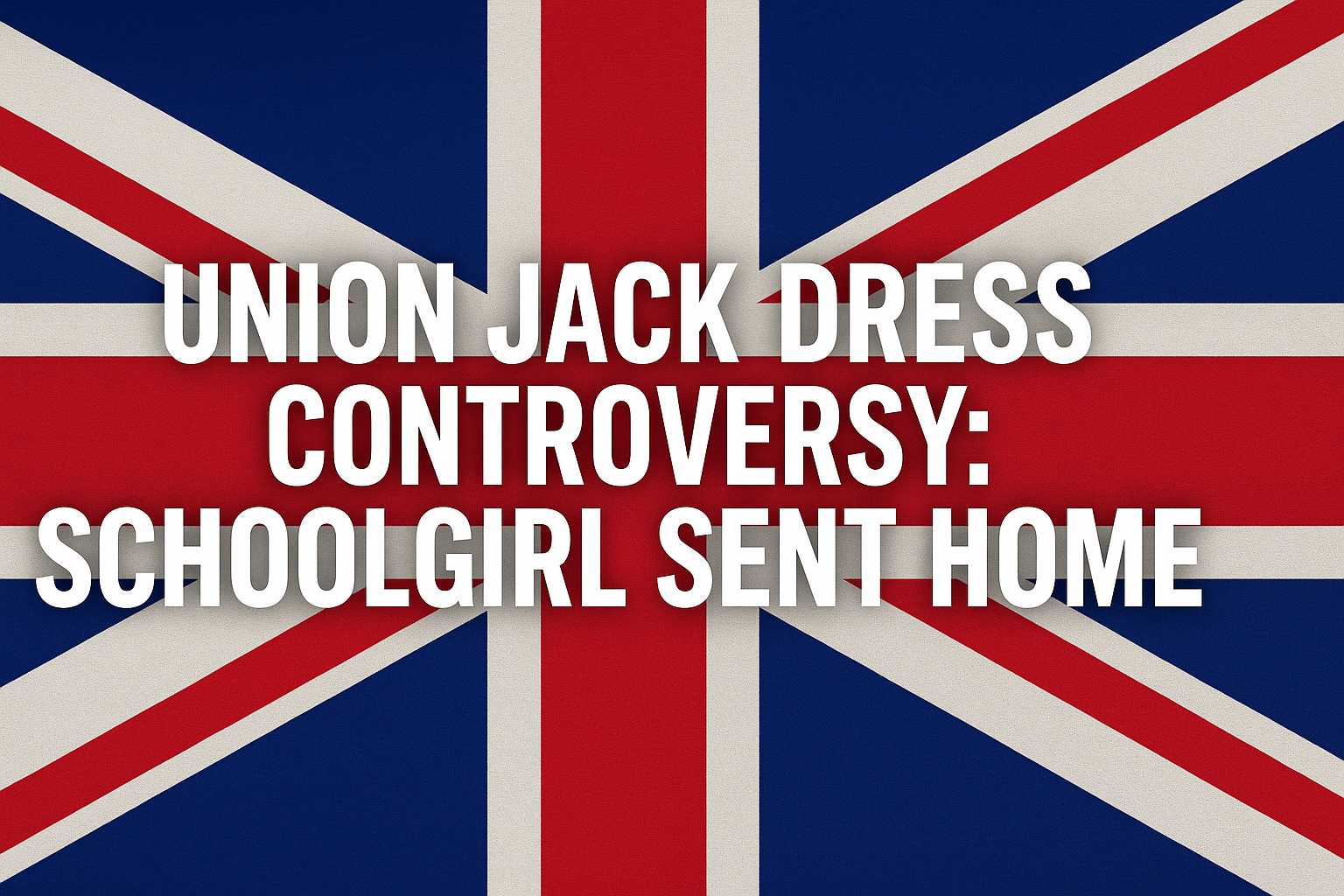A Warwickshire school has been thrust into the spotlight after a 12-year-old girl was sent home for wearing a Union Jack-inspired dress to a “Culture Celebration Day” — igniting a heated national conversation about patriotism, diversity, and free expression in British schools.
A Day Meant to Celebrate Diversity Ends in Division

On Friday 11 July 2025, Courtney Wright, a Year 7 pupil at Bilton School in Rugby, arrived dressed in a vibrant Union Jack outfit, channelling the iconic style worn by Geri Halliwell at the 1997 Brit Awards. She came prepared with a short speech about British traditions — from cups of tea and fish & chips to the nation’s famous sense of fairness and politeness.
However, instead of being welcomed into the event, Courtney was told she could not take part. According to her father, school staff informed her the day “wasn’t for her” because “being British is celebrated every day.” She was then asked to wait in reception until he could collect her.
Family Outrage and Public Backlash
Courtney’s father, Stuart Field, wasted no time in sharing the story publicly, describing the decision as “insulting” and “hypocritical.” He argued that British heritage is part of the country’s cultural diversity and should be treated equally alongside other cultures.
His comments quickly gained traction, drawing widespread attention from the public, media outlets, and political figures. Social media erupted, with many accusing the school of discriminating against its own national identity.
Downing Street even stepped in, issuing a statement that “being British is something to be celebrated,” firmly siding with the Wright family.
School’s Apology and Policy Review
In the wake of mounting pressure, Bilton School released a formal apology. The statement expressed “deep regret” for the distress caused to Courtney and her family and promised to review event guidelines, improve communication, and provide additional staff training to ensure such incidents would not happen again.
While some parents welcomed the apology, others questioned how the decision was made in the first place, calling for more transparency in how schools interpret and apply inclusivity policies.
Escalation and Safety Concerns
The controversy took a darker turn when the school began receiving threatening messages — including extremist abuse — via phone calls and online platforms. The situation escalated to the point where, on Friday 18 July 2025, Bilton School was forced to close early for the safety of students and staff.
Local police confirmed they were investigating the threats, describing them as “unacceptable and criminal.” The incident has since raised broader concerns about how quickly school disputes can spiral into national flashpoints in today’s hyper-connected world.
The Bigger Picture: Patriotism vs. Inclusivity
The Union Jack dress row has tapped into a wider cultural debate in Britain: Can patriotism and diversity coexist without conflict? Supporters of Courtney’s actions argue that celebrating British heritage is entirely consistent with multicultural values, while critics of the school’s handling say the incident sends the wrong message to pupils.
Others believe the issue highlights a growing sensitivity around national symbols in the classroom, with some schools wary of anything that could be interpreted as political — even when the intent is simply cultural pride.
Moving Forward
For Courtney, the episode has been both upsetting and overwhelming. Her father has said the family simply wants her to be able to express pride in her own heritage without fear of being excluded.
As the dust settles, Bilton School’s promised review will be closely watched by parents, educators, and politicians alike. In the meantime, the case has left one thing crystal clear — the question of how British identity fits into a modern, multicultural classroom is far from settled.

Hi, I’m Sarah Jade. I’m 25, Yorkshire born stubborn redhead, and just finding my feet in the wild world of independent journalism.I’ve always had this fire in me for telling real stories, the kind that actually mean something. I love the British spirit, the blunt honesty, the humour, and yes… I do get emotional about free speech and the truth. I’m not perfect, but I care deeply about people, fairness, and saying what others might be too scared to.

That same bullshit happened here in US a number of times: This or that multi cultural space is only for minorities – not for white people. It always involved universities. People are just too fucking stupid sometimes.
How stupid and divisive can authorties be?